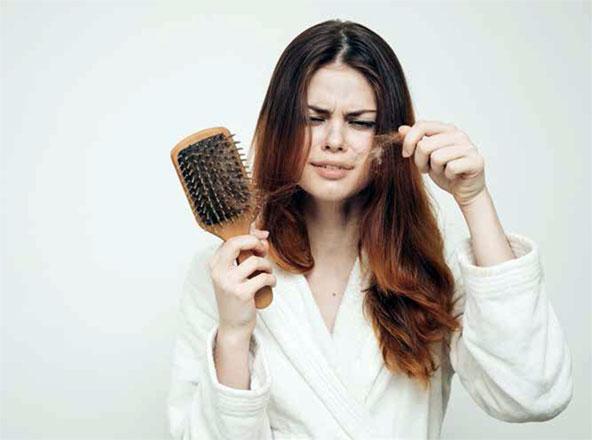You are here
Enjoy smooth hair-free skin this summer
By Dr Dana Fara’neh Batayneh , Family Flavours - Sep 16,2018 - Last updated at Sep 16,2018

Photo courtesy of Family Flavours magazine
What is LASER?
LASER is an acronym that stands for Light Amplification by Stimulated Emission of Radiation (LASER) – it is basically amplified light. LASER has many uses in the medical and cosmetic field; the most popular of which is hair removal. It is a very safe procedure provided you have done your homework and made sure you are in safe hands.
How does LASER work?
Melanin is the pigment that gives your hair and skin its colour. LASER machines work by targeting the melanin inside the hair follicle, which absorbs the LASER heat. This heat destructs the hair follicle and causes it to fall out and stop growing. Hair follicles go through a cycle of three phases:
• Anagen (Growth phase)
• Catagen (Transitional phase)
• Telogen (Resting phase)
Hairs in the Anagen phase contain the highest amount of melanin and therefore are the hairs mostly affected by LASER sessions.
Is it permanent?
LASER hair removal is semi-permanent. It destroys most hair follicles. Some hairs, however, will grow again and these need maintenance or retouch sessions every few months (on average every six months to one year). The areas showing best results are usually ones with dark thick hairs and light skin. Areas with thin light-coloured hairs or darker skin tend to respond less and therefore will need more maintenance sessions – like bikini line, the thighs and the upper arms.
Which LASER machines are best?
This depends on skin type. Where IPL (Intense Pulsed Light) machines do have an effect on hair growth; this effect tends to be temporary and not as good as LASER machines. Alexandrite LASERs are the best for targeting hair follicles overall. They are the preferred machines for people with fair skin. In people with darker skin tones, however, the safer option is Diode or Nd-Yag LASERs.
Do I have to wait until I’m done having kids to start LASER hair removal?
No. Pregnancy lengthens the growing phase of the hair cycle (that is why we notice that we have lush lustrous hair during pregnancy). Unfortunately, this also applies to body hair as well, so you may notice an increase in body hair during pregnancy. But the good news is that everything should go back to normal after you give birth. The increase in hair growth persists only in the case where there is a disruption in hormones. LASER hair removal is a safe procedure during breastfeeding and even during pregnancy although it is best to postpone your LASER sessions until after you give birth.
Response to LASER hair removal depends on:
• The type and efficacy of the machine
• The parameters used: inappropriately higher parameters can cause burns and insufficient parameters can delay response, therefore, increasing the number of sessions needed
• The person administering the session. LASER has to be done either by a doctor or by a licensed professional under direct medical supervision by a doctor. Your doctor will perform an assessment and examination before the first session. We need to make sure there are no medical causes that could lead to a lack of response to LASER and therefore a waste of money, such as Poly Cystic Ovarian Syndrome or insulin resistance. Sometimes we also do a patch test to make sure the readings will be safe for your skin tone before the sessions. We also need to observe the results of every session and tailor the parameters accordingly
Before your LASER sessions
• Avoid tanning for at least six weeks before you start your sessions and in between your sessions. Getting tanned darkens your skin tone, which means having to lower the LASER readings for your next session to avoid burns. Doing so can delay response to the LASER, therefore necessitating more sessions
• You need to stop waxing, sugaring, threading or plucking the hairs six weeks before your sessions
• You need to shave the hairs the day before your session with a razor
• Keep your skin hydrated in between sessions but avoid using any cream or moisturizer 48 hours before your session
• Inform your doctor if you are taking or have recently taken Roaccutane for acne, because you should not undergo LASER sessions during Roaccutane treatment and sometimes for a while after you finish taking it
• Avoid using chemical peeling agents or bleaching agents for at least a week before your session
After your LASER sessions
• Hair will continue to grow in length normally after your session. After 10 to 14 days, some hair will fall out randomly (a maximum of 15 to 20 per cent of the hair in a certain body area will fall out after your session). As you progress with your sessions, you will start noticing some empty areas of skin with no hairs. Sometimes we don’t see hair falling out; you will only notice that there is less and less hair growing back after your session
• You might have some skin redness in the treated areas, sometimes with small red spots surrounding hair follicles. You should not worry, but contact the clinic if the redness does not disappear the day after your session. You can use cold compresses to alleviate the pain and irritation afterwards if there was any
• Avoid saunas, hot showers or exercises that cause excessive sweating for 12 hours after your session (or until the skin redness settles down if there was any)
• Use the moisturiSer your doctor prescribes after your session and a sunscreen on the treated areas after every session as well as in between your sessions. Sometimes your doctor will prescribe special creams for treated areas as well
• Do not shave, wax, sugar or pluck the hairs in between sessions. You can shave instead. Shaving does not affect the result of LASER; so you can shave as frequently as you want in between sessions starting from the day after your session
• To make sure you get the best results, schedule an appointment every four to six weeks and do not skip sessions
Reprinted with permission from Family Flavours magazine
Related Articles
By Dr Renad SeheimatClinical Pathologist and Laboratory Medicine SpecialistOne of the most common complaints I see in my field of specialisa
Although acne is commonly thought of as a problem of teens, it can occur at any age.
By Dr Ola Abu LabanSenior Ob/Gyn Resident Pregnant mothers are often bombarded with advice from every direction, a lot of it unsu














